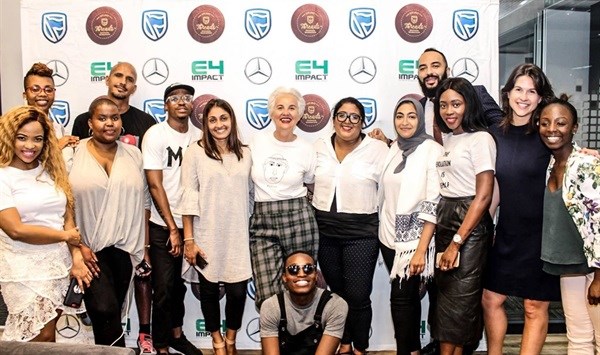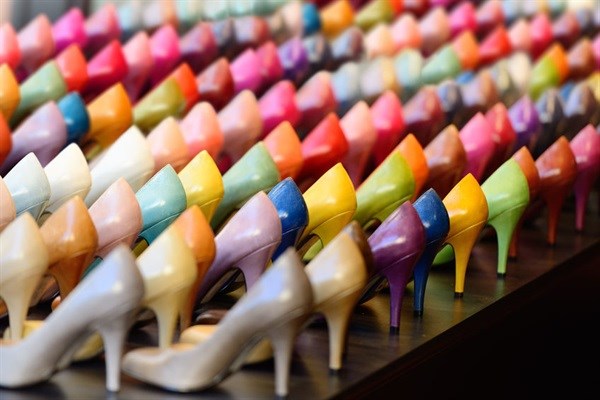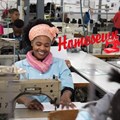The word 'pollution' may conjure up images of dirty waterways, smog-filled city skies and coal power plants, but seldom is it realised that the very clothing on our backs may be the product of a dirty and dehumanising supply chain.
The fashion industry is one of the world’s top polluters and is in dire need of a sustainability check. According to the World Bank, 20% of water pollution globally is caused by textile processing, making it the second biggest polluter of freshwater resources on the planet.
Conventional textile manufacturing is tough on both the people who work in it and their land, writes the Washington Post’s Esha Chhabra. “Issues arise at almost every stage of the process – the ubiquitous genetically modified seeds that strain farmers’ budgets, the pesticides used in cotton fields, the harsh chemicals used in dyes, the toxic waste that pollutes rivers, and the chemically treated clothing that ends up in landfills.”
The clothing industry’s labour conditions, meanwhile, has been characterised by criminally low wages and working environments so unsafe that it's claimed lives.
And it’s all in the name of fast fashion.
Fast, fickle fashion
Clothing consumption is predicted to soar by 60% by 2030, reports the Changing Markets Foundation. The advancement of manufacturing capabilities and the rise of the image economy – driven by the proliferation of social media – has helped enable a culture of mass-consumption… and mass disposal.
Awareness surrounding the fast fashion industry's association with exploitation and pollution has until recent years taken a back seat to shoppers' insatiable desire to remain ‘on-trend’. Thankfully though, a new breed of conscious consumer has emerged and conversations surrounding green living and conscious consumption are shifting into the limelight.
“The average American woman does not wear 60% of her wardrobe,” said Jackie Burger at a recent ‘Sustainability in Fashion’ co-creation session in Cape Town. The former Elle editor, celebrated style icon and salonniere of Salon 58 hosted the discussion as a judge of the 'Threads, the Business of Fashion Accelerator' currently in process.

Jackie Burger with the Threads finalists and organisers at the Sustainability in Fashion co-creation session.
Threads is a 12-week bootcamp designed to boost South Africa's up-and-coming fashion designers and turn them into powerful fashion CEOs. The first of its kind in South Africa, the accelerator is curated by the University Cattolica of Milan and tackles the business side of fashion: from logistics to e-commerce, to franchising right through to accounting and marketing.
The winning participant receives a package that includes a trade trip to Europe to meet top retailers and buyers, a sponsored Mercedes Benz for one year and an SME banking starter pack from Standard Bank.
As part of the discussion, Burger posed the question “What does sustainability mean to you?” The responses highlighted the highly nuanced interpretations of the concept; from efficiency in production methods to conscious living, human rights, waste management, and ultimately the awareness of providing for future generations both environmentally and economically.
Following the co-creation session, we sat down with Burger to hear her views on fast fashion and South Africa's sustainable design scene.

Jackie Burger
What inspired you to get involved with the Threads programme?
I was approached early last year, but honestly, it's an honour for me to be part of something with such belief and trust in our design talent. The value system that formed the departure for this initiative is so considered that I was actually like 'really, can I be a part of it?'
It's completely unique and the first of its kind in South Africa. The greatest thing for me is that, yes, there might be one winner, but each and every finalist will leave completely equipped to further their existing business or to start a new business.
And they get to partake in it without having to fork out a fortune, in terms of having to study or go overseas. It's all happening right here.
Looking at the move towards conscious consumerism, what factors do you think are driving people to demand more sustainable practices from businesses?
There are a few variables we need to look at. I think it may be the cliched premise that for every movement, there will be a counter-movement. Things are reaching a saturation point because of digital platforms and availability, and because manufacturing systems have been designed to just produce, produce, produce.
Systems have made high volumes of consumption very accessible, and perhaps we’re getting fatigued and bored with things that are available 24/7.
I also think the culture that started driving this overconsumption is being depleted. The new consumer is a far more conscious consumer; they want to know the origin, they’re concerned about the planet, ecosystems and resources.
How do you think South Africa's sustainable fashion scene compares globally?
It's tricky because we’re quite young in terms of our fashion consumer profile, and we also can't separate it from our political and economic structure in terms of disposable income.
I’d also say that only over the last two years in South Africa there's been a democracy of choice and accessibility to global brands. In light of that, I think sustainability is still not very much top of mind.
But there’s a new generation of designers, like Jane Sews and Jota-Kena, who are saying 'I can choose who I want to be in this sea of choices’, and that's very important. Designers are realising that being part of the sea of sameness is not going to carve their disposition.
They don't measure success purely in the financial sense, they measure it from a far more holistic value system. That’s exciting to see.
You spoke of Jane Sews and Jota-Kena. Who do you think are the other leaders in sustainable fashion in South Africa at the moment?
There are various ways of looking at sustainability. Going beyond raw materials, I also look at sustainability in terms of local designers believing in and harnessing their roots. Black Coffee’s Jacques van der Watt has always remained true to his brand signature and he's always honoured his heritage.
In the same way, Marianne Fassler just keeps on re-energising, and I'm always astounded at just how bare and powerful all her collections are. So, there’s sustainability in terms of job creation. If the brand is strong you’re able to create work and provide mentorship for the next generation of designers.
Then there’s the Chulaaps of this world. He reinvents his signature so beautifully, and he makes pride in our culture sustainable, and helps strengthen its export value.
We should applaud the value system and not just the clothes.
In terms of production methods that are kind to the earth, do you think there's enough educational support for the local industry?
I'm commenting as a layman because I'm not too in touch with the production and manufacturing side anymore. But from what I see on the surface, no I don't think so.
I don't think resources are being made available and also, sitting on the other side of media and publishing now, it's not being spoken about enough. A lot of publications are still just sticking to what's sexy, but I believe that if you work in the publishing industry, you have a responsibility to educate your audience.
Everybody is talking about influencers in the fashion industry and all I personally see are egos. The image economy is huge and it’s encouraging people to consume and dispose. We dump things, like clothes, when they no longer serve us anymore. It comes from a 'me' point of view instead of an 'us' point of view.
Conscious living is about being aware that if you buy something, you buy into a whole economy. You buy into how much people are being paid and how they’re being treated. But people are not aware and I think there are many levels of education that needs to be done.
All this was considered when creating Salon 58. We invite people to ‘meet the maker’, ask them questions and understand where they come from. And in terms of styling, we show people that there are many ways to wear an item of clothing, and there’s actually more gravitas in wearing the same thing over and over again in a different way than there is in constantly consuming and disposing.
In some ways, I think it’s an extension of one's self-confidence. It's about learning to be okay with who you are as a person.













































